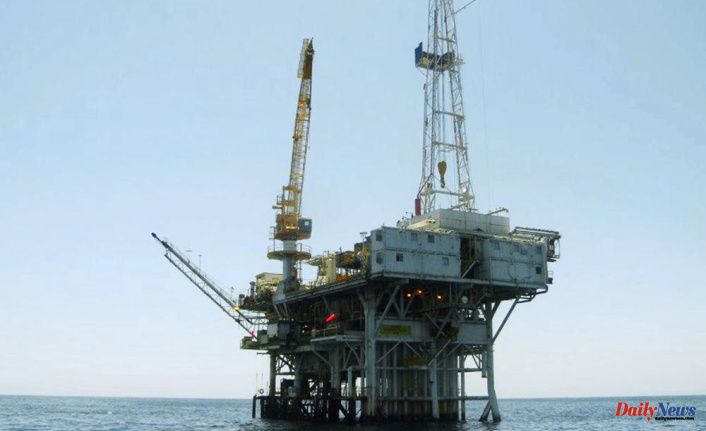Even in California, it's not easy to do. While the state has not issued a new lease for state water in over 50 years, drilling continues from existing platforms. A similar effort by Congress to stop new drilling in federal water -- more than 3 miles (4 km) from the coast -- would not stop existing drilling.
On Tuesday, the California Governor. Gavin Newsom admitted that it is easier to resist new drilling rather than to end what is already there.
He said, "Banning new drills is not difficult." "The bigger question is: How do you transition while still protecting the workforce?"
There are currently 19 oil and gas deals in California's coast waters, and 1200 wells. There are 23 oil-and gas production facilities offshore the state's coast in federal waters.
Amplify Energy from Houston, which owns a pipeline connecting to one of these platforms in federal waters, has spilled heavy crude oil in one of the most severe oil spillages in California history. It is estimated that 126,000 gallons (572,807 liters), of crude oil were spilled by the pipeline.
Newsom stated that there is a renewed sense of urgency to reduce oil production. This includes issuing more permits for well abandonment.
"It's high time to stop denying ourselves that this must be part of our future. He said this alongside other elected officials.
California is still the seventh largest oil-producing state in the country. It has been difficult to wind down California's oil production. This industry employs over 150,000 people and the state earns money from oil and natural gas leases.
Newsom has taken steps towards reducing reliance on oil. This includes a plan that will end state oil production by 2045 and ban the sale of new gas-powered cars until 2035. His administration still issues new oil drilling permits offshore and on-shore, but in 2020, it issued more permits for closing wells than opening new ones. Jacob Roper, a spokesperson for the state Department of Conservation, stated that this is despite his efforts to curb reliance on oil.
According to data from FracTracker Alliance, California waters have nearly 1,200 active wells offshore. Nearly 1,300 wells have been plugged, and 370 are still inactive. According to the group, five permits were granted to drill new offshore wells under Newsom's tenure.
"Gov. Newsom must prioritize ending oil drilling now, rather than talking about it," stated Liza Tucker of Consumer Watchdog. She works with FracTracker and advocates for an end to oil.
An alliance of unions and environmental organizations wants Newsom to create a safety network for oil workers transitioning to cleaner jobs. The California Climate Jobs Plan, which aims to create 1,000,000 jobs in California over the next ten years, will cost the state tens or billions of dollars per year.
"Gov. Newsom must find a way for Newsom to make this plan a reality, and invest in the infrastructure and good jobs that will save the planet and take care Californians," said Tracey Brieger (campaign director of Jobs with Justice San Francisco).
While efforts are being made to decommission various state oil platforms, the process can be costly and time-consuming. Decommissioning the Wilmington Oil Fields offshore Long Beach is expected to cost over $800 million. Only $300 million has been set aside by the state.
Patrick O'Donnell, Democratic state Assemblyman said that it all boils down to priorities and finances. "I hope we can look at these wells as we move forward, and stop them from operating as soon as we can."
California's congressional delegation introduced legislation to ban permanent oil and gas drilling in federal waters offshore of the coasts of California, Oregon, and Washington.
Democrats plan to include the bill in a multitrillion dollar social and environmental package. It would not affect leases that have been issued to long-standing oil platforms built between the late 1960s and early 1990s. Platform Elly in California, the site of the recent oil spillage, is one example of many California oil platforms that have either reached or exceeded their lifespan.
Deborah Sivas, Stanford Law School professor of environmental law, stated that "as they age these platforms become more and less fragile" and are corroded by ocean water.
On Tuesday, Rep. Alan Lowenthal (a Democrat from Orange County) spoke alongside Newsom. He said that the federal government must do more.
He stated, "We must come up with an idea to not only stop new drilling, but also to figure out how to stop all the drilling that's happening in California."
Congress is not considering any legislation to ban current offshore drilling.
The Western States Petroleum Association spoke out and called the incident a tragedy. Amplify Energy is the platform's owner. They are not members of the association. Although the spillage is causing calls for greater drilling restrictions, Kevin Slagle, Amplify Energy's spokesperson, said that he hopes "we don’t resort to banning and mandating to address our energy future."
Slagle stated that any proposal to restrict California's drilling will likely increase imports from Ecuador, Saudi Arabia, and other countries. More than half of the state's oil consumption comes from imports.
California's status of an oil-producing state has been a problem for Democratic governors since the beginning, even former Gov. Jerry Brown. Brown is internationally known for his efforts to combat climate change. However, environmental groups have criticised him for not taking enough action at home to stop drilling.
He acted quickly to stop federal drilling off California's coast under the Trump administration and signed laws that prohibited the state from leasing any new infrastructure to support federal drilling.
Environmental groups believe that regulations to ensure safe operation of offshore wells have never been more important.
Irene Gutierrez is a senior attorney at the Natural Resources Defense Council. Gutierrez said that incidents like these really highlight the need for strict regulation of existing platforms. Regular inspections are also necessary.












